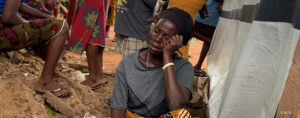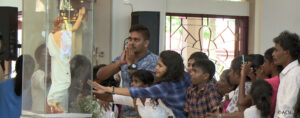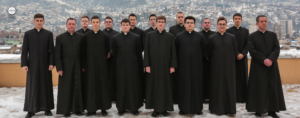“Without faith, I couldn’t continue, not even for a minute.”
Bethlehem, West Bank/Königstein, Germany/Montreal, Canada – In an interview with Aid to the Church in Need (ACN), Rony Tabash, a member of a Christian family that has been in Bethlehem for generations, describes how the current conflict is directly impacting the Christian community in the West Bank. Amid despair and uncertainty, many residents of Bethlehem are facing the tough decision of leaving their homes due to loss of hope and lack of opportunities.
“The situation is terrible; it’s not easy at all. Every day, new challenges arise. I’ve never experienced anything like this before, never! It’s a war. Not like a war; it is a war,” Tabash says, showing deep concern.
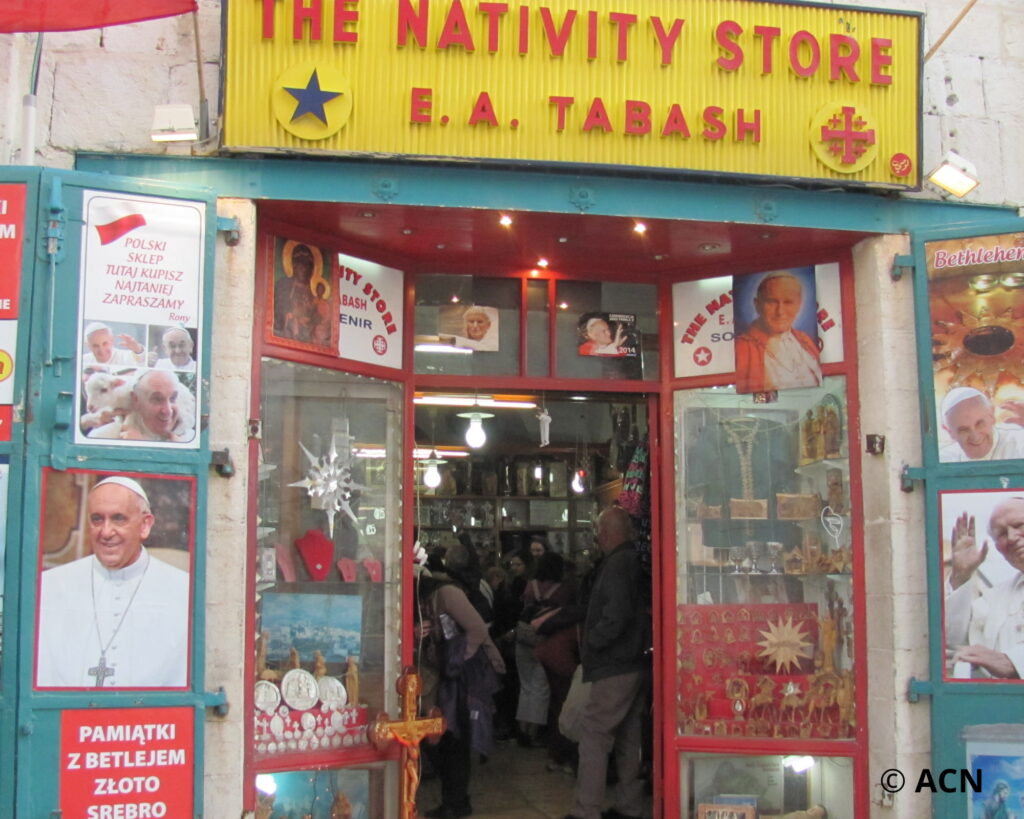
Tabash is the owner of a shop that sells religious articles in Bethlehem’s Manger Square, and he had hoped to finally pay off his debts and recover economically after the COVID-19 pandemic, but he now finds himself confronting a bleak reality. The absence of pilgrims has left the local economy in ruins, affecting all sectors that rely on religious tourism, from hotels and restaurants to olive wood craftsmanship and souvenir sales. Tabash emphasizes the importance of pilgrims to the Christian community in Bethlehem and stresses that the lack of visitors has left many families “jobless and hopeless.”
“There are no pilgrims. Everything is empty; there’s no one. And they say it will last until Easter. I am not just concerned about money or the economy, although I don’t know how I’ll make it to the end of the month, but I am concerned about the future of Christian sites and Christian families,” he laments.
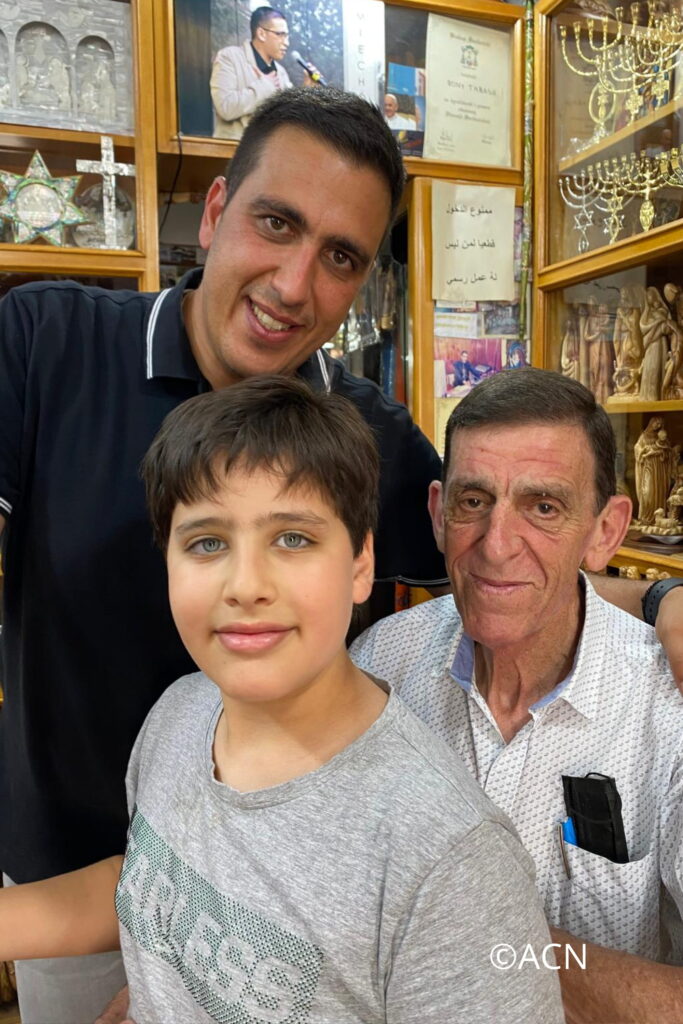
Bombs over Bethlehem
The owner of the religious souvenir shop also shares his concern for the safety of his family and the citizens of Bethlehem in his conversation with ACN. “These days, there are bombs in the sky over Bethlehem. Children are scared. My kids don’t want to be separated from our side,” he tells.
Tabash also highlights the additional difficulties felt by those who, “due to the COVID-19 pandemic and the absence of pilgrims during that long time in the West Bank, sought work in Jerusalem. Now the checkpoints are closed, and entry permits for Palestinians have been blocked.”
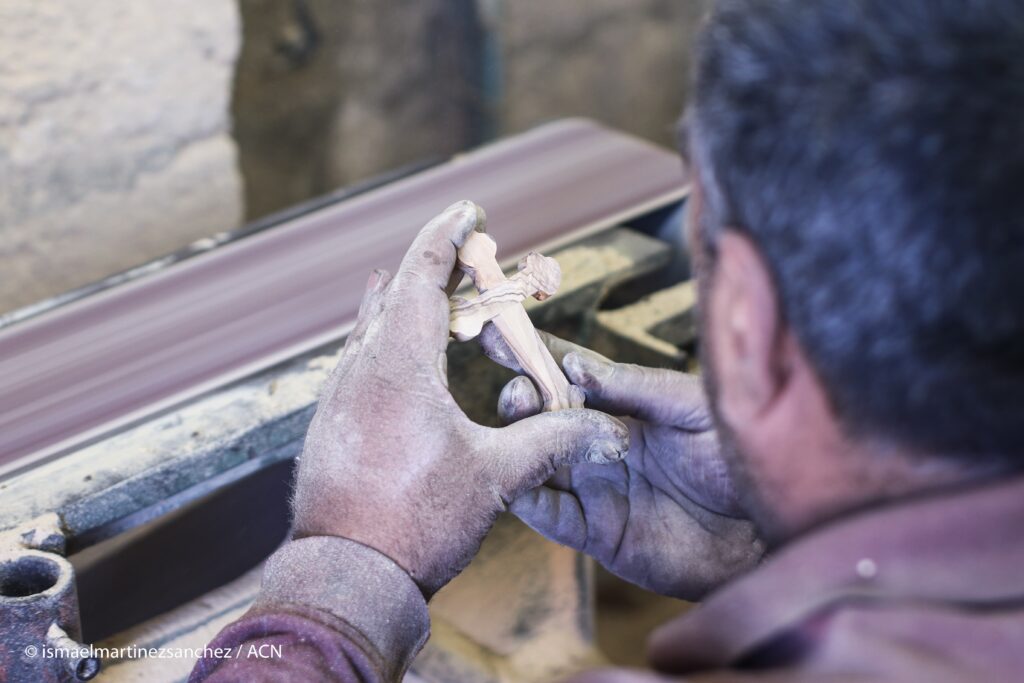
The few people who happen to have dual nationality are leaving their homeland because they have lost hope, the young Christian laments: “A friend of mine who had a small bus business is leaving the Holy Land this weekend.” However, the vast majority do not have this possibility. Some like Tabash have made the decision to stay, even though they could leave: “I keep opening my shop every day. I go to the square, in front of the Basilica of the Nativity, and people ask me why I’m going. I’m the only one opening the shop. The only thing that sustains me is faith. Without faith, I couldn’t continue, not even for a minute. We’ve lost hope. All that’s left is faith.”
A sacred place for all
“I can’t leave this. I can’t leave my father,” Tabash affirms. “Our family has owned this shop since 1927 when it started renting the space from the Armenian Church. My father tells me, ‘Have faith. Bethlehem is a sacred place; it won’t be touched.’ Yes, I will stay because it’s a sacred place. We’re living in the place where Jesus was born. We can’t leave. If it weren’t for that, I would leave instantly.”
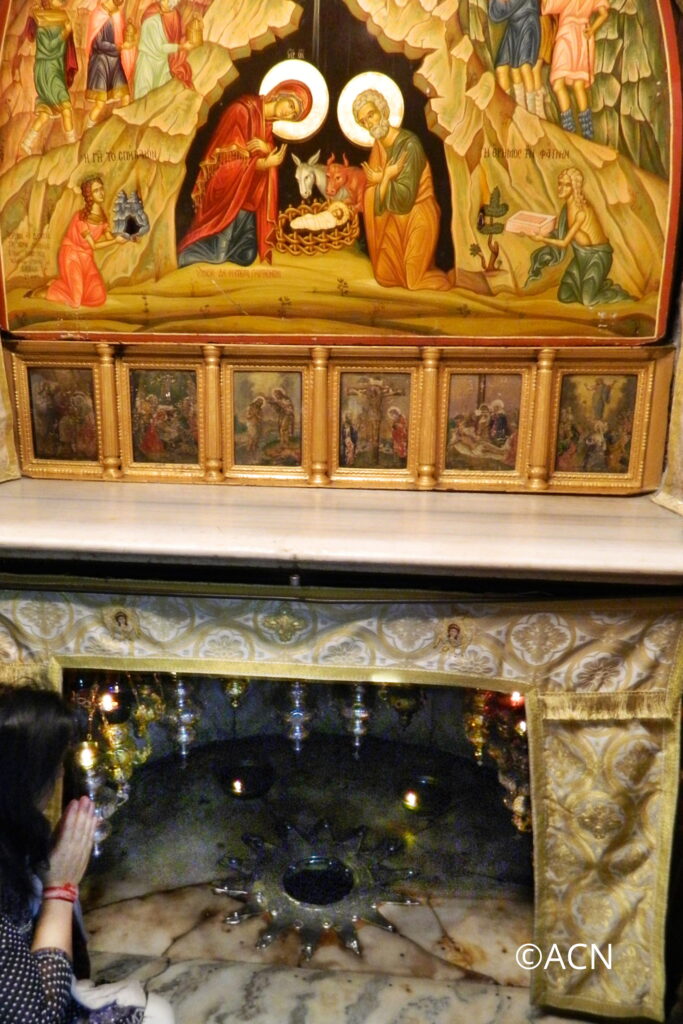
“But as a Christian Palestinian, my mission is to be here, even though every day new challenges come. The war has to end. We are tired; we want peace, only peace for our children and our families,” Tabash says.
During the interview with the pontifical charity, he makes an international appeal for the preservation of the sacred place where Jesus was born. “Is this place only sacred to me, to my family, to us Palestinians in the West Bank? Isn’t it a sacred place for all Christians in the world?” he wonders. “Many people have the desire to come to the Holy Land, and it’s time to help us, to be present in these holy places,” he states with conviction.
Due to travel restrictions and the danger in the region, Tabash knows that people can’t physically come, but he urges them to be present in other ways: “Come with your prayers. Come with your actions asking for peace. Come by defending the integrity of these places. The silence scares me. Come, with your support for the Christian families in the Holy Land.”


